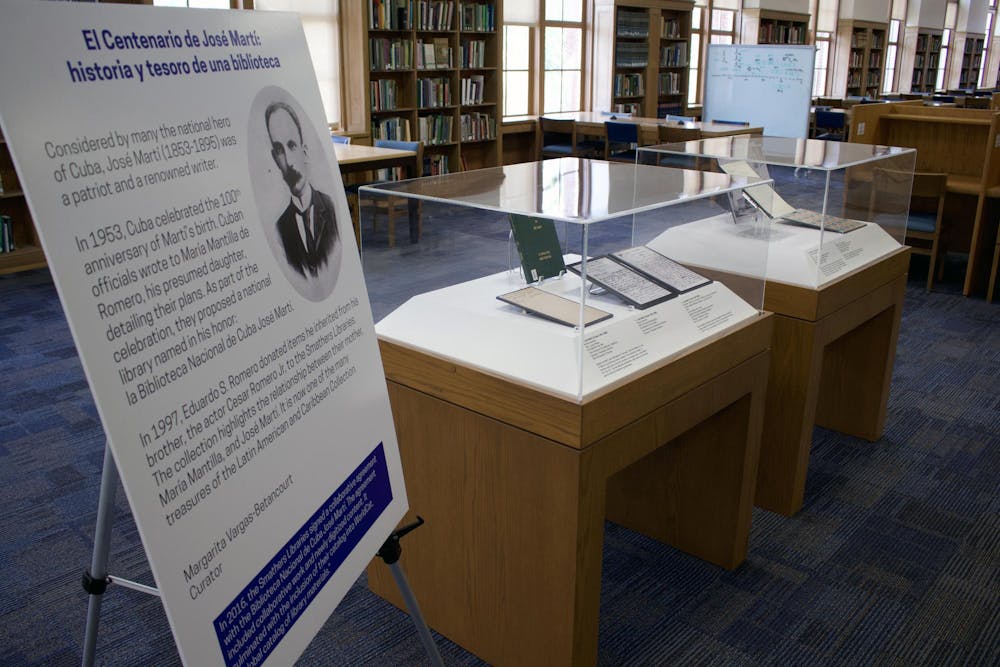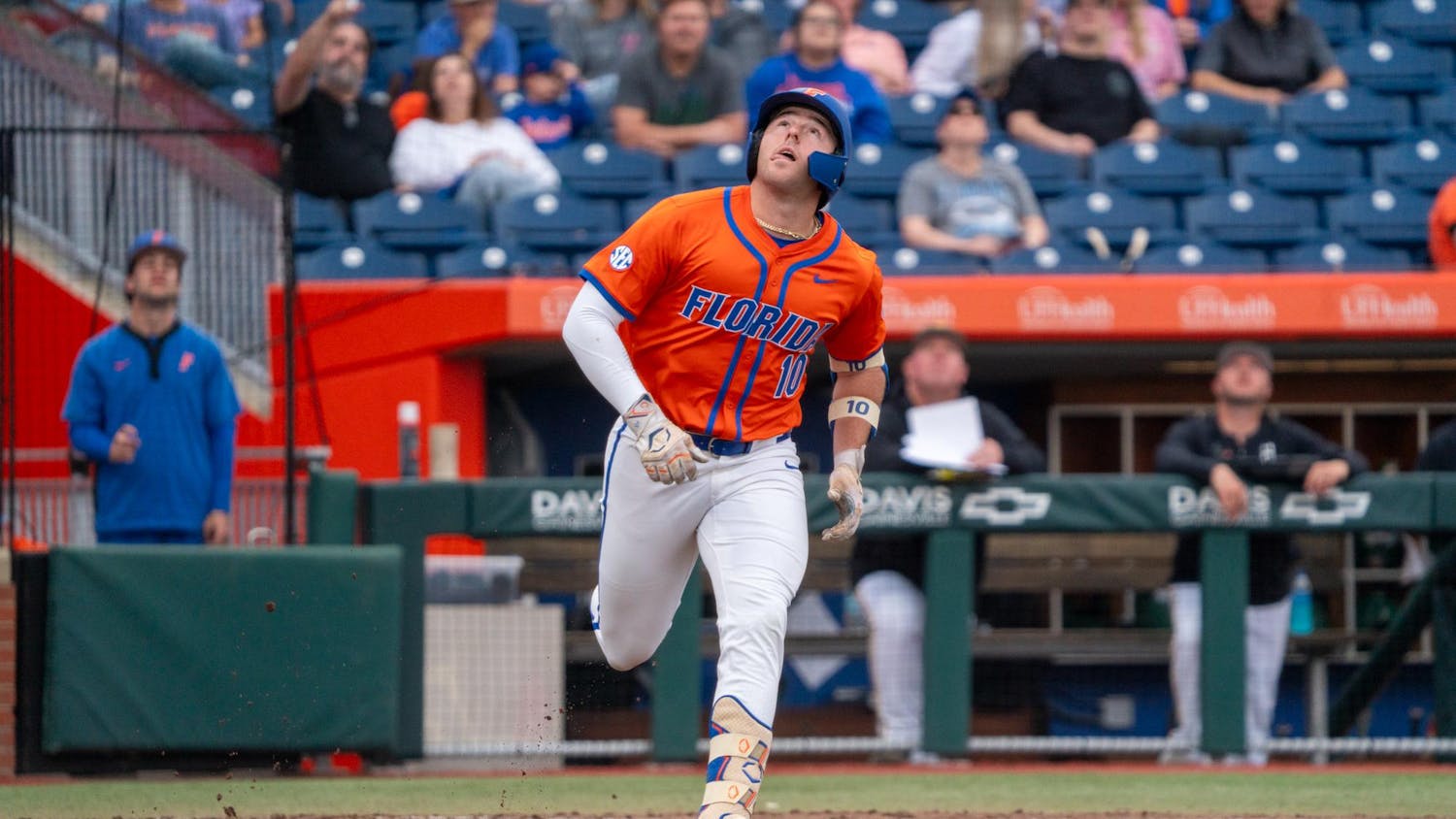Many University of Florida students walk through the halls of Smathers Library without realizing they are just steps away from one of the most important collections in the United States focused on Latin America and the Caribbean.
Founded in 1925, the Latin American and Caribbean Collection is located on the third floor of the library. It holds over 500,000 books, historical newspapers, more than 50,000 microfilms, recordings, recipes, films and materials in English, Spanish, Portuguese, French and various Indigenous languages.
Fernanda Bretones Lane is a UF assistant professor of history specializing in the colonial Caribbean, the Atlantic world and Afro-Latin America. She focuses part of her academic work on the study of slavery in the region and in other parts of the Americas.
“Definitely for the Caribbean, we have one of the most important collections,” Bretones said. “I’ve used a lot of the resources for my own research as well as for my teaching.”
Bretones has worked with rare primary sources that are difficult to find elsewhere, such as plantation diaries or traveler accounts.
LACC houses rare materials that can not be found in other places. Many of them are original copies that were only produced once and are preserved in the collection, while others exist in multiple copies but are scattered across different parts of the world.
Beyond her own studies, Bretones has seen how LACC resources enrich student work. She has turned to these archives herself for her research on slavery in the Caribbean.
“It’s a source that gives us individualized information about individuals who have been largely erased from the record,” Bretones said. “You can learn a lot about individuals and even entire groups just by looking at that kind of material.”
Lillian Guerra, a professor of history specializing in Latin America, Cuba and the Caribbean, shares that perspective. To her, the collection not only preserves the history of the Caribbean but also of other countries whose archives were eliminated by authoritarian regimes.
“We have Argentine newspapers from the 1940s and 1950s that were eliminated by dictatorships,” Guerra said. “If you’re going to specialize in that period, you have to come to the University of Florida, because they no longer exist in Argentina.”
Guerra has personally experienced how LACC provides access to censored materials from their countries of origin. In contexts like Cuba, where many newspapers are restricted, the LACC’s microfilms become essential for research.
“That’s when you realize the importance of this collection,” she said.
The value of LACC lies not only in its archives but also in the people who make it all possible, she said.
“The library is more than what it contains,” she said. “The subject specialists know how to present the diversity of the content and explain how to access it, how to research, which terms to use — even those that are now historical and no one uses anymore.”
The collection features rotating themed exhibits that change monthly based on occasions or special events. This June, in honor of Caribbean Heritage Month, the collection is presenting a display of Caribbean cookbooks, accompanied by bilingual recipe cards — in Spanish and English — with traditional dishes from countries like Cuba, Puerto Rico, Panama and Mexico.
The recipe cards were designed by library faculty members and are directly sourced from the cookbooks in the collection.
Melissa Jerome, LACC’s digital initiatives librarian, highlights the unique value of the materials the collection preserves.
“They are materials you can’t find anywhere else, like unique or very limited copies,” Jerome said. “That’s why I’d say we have a pretty unique collection.”
She acknowledges that access to these resources is becoming more difficult as microfilm readers are disappearing from many libraries.
Jerome explains that to make content more accessible in today’s digital era, she devotes much of her work to digitizing newspapers that exist only on microfilm. She works with an external vendor to whom she sends the materials, and they return both the originals and the digital files.
Molly Coolican, a 20-year-old UF history junior, discovered the collection thanks to her professor, Bretones Lane. She recommended exploring the LACC website and taking a look at the shelves, which helped Coolican define the topic for her final paper.
“The primary things that I needed for my project were from UF were from the LACC,” Coolican said. “I would not have figured out my topic, been able to research my topic, or written this super long paper that I am so proud of without the LACC.”
Jonathan Clubb, a 20-year-old UF economics junior, discovered the LACC while working on a project about Latin America. Although he initially doubted whether he would find enough material, he soon realized the value of the collection.
“If you’re doing any research about anything in Latin America or the Caribbean, it’s there,” Clubb said. “I would certainly encourage other students to use it.”
Beyond the academic setting, the collection offers opportunities for the Latino community in Gainesville and for anyone interested in Latin American and Caribbean culture. It includes novels, short stories, comics, posters, maps and even children’s books.
Keith Manuel, public services associate at LACC, encourages students to visit and take full advantage of the space.
“We just want students to come in, use the space, enjoy the space, and just ask us if there’s something we can help with,” Manuel said. “Or we can direct them to someone else if we can’t answer whatever questions or provide the services that they need."
Contact Candy Fontana-Verde at cfontanaverde@alligator.org. Follow her on X @CandyFontanaV.






